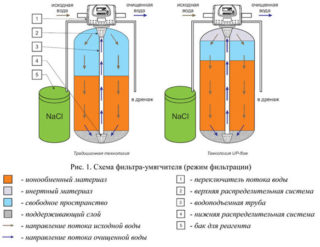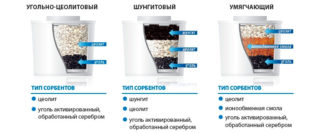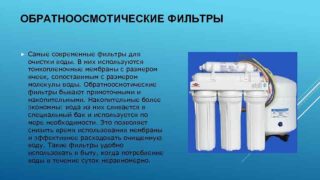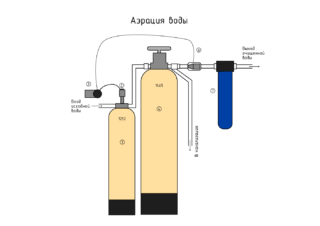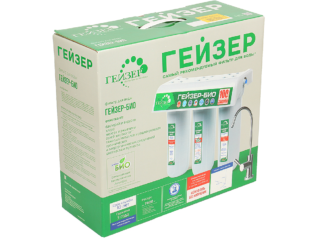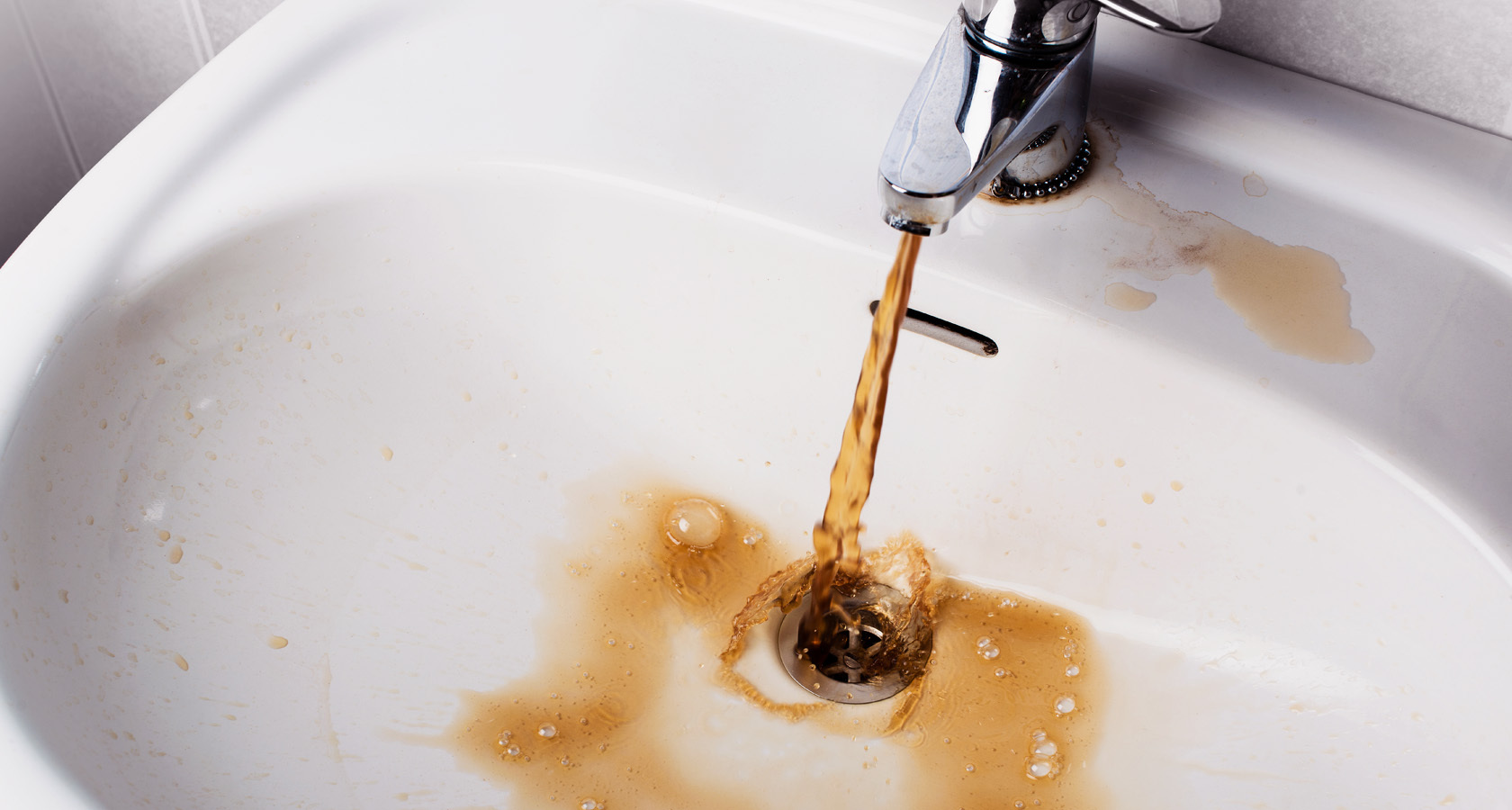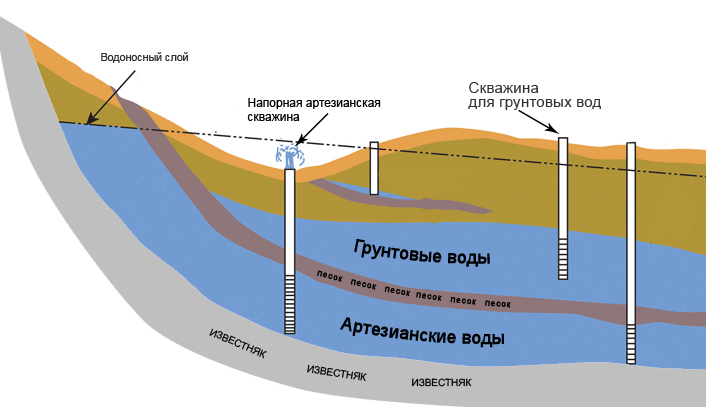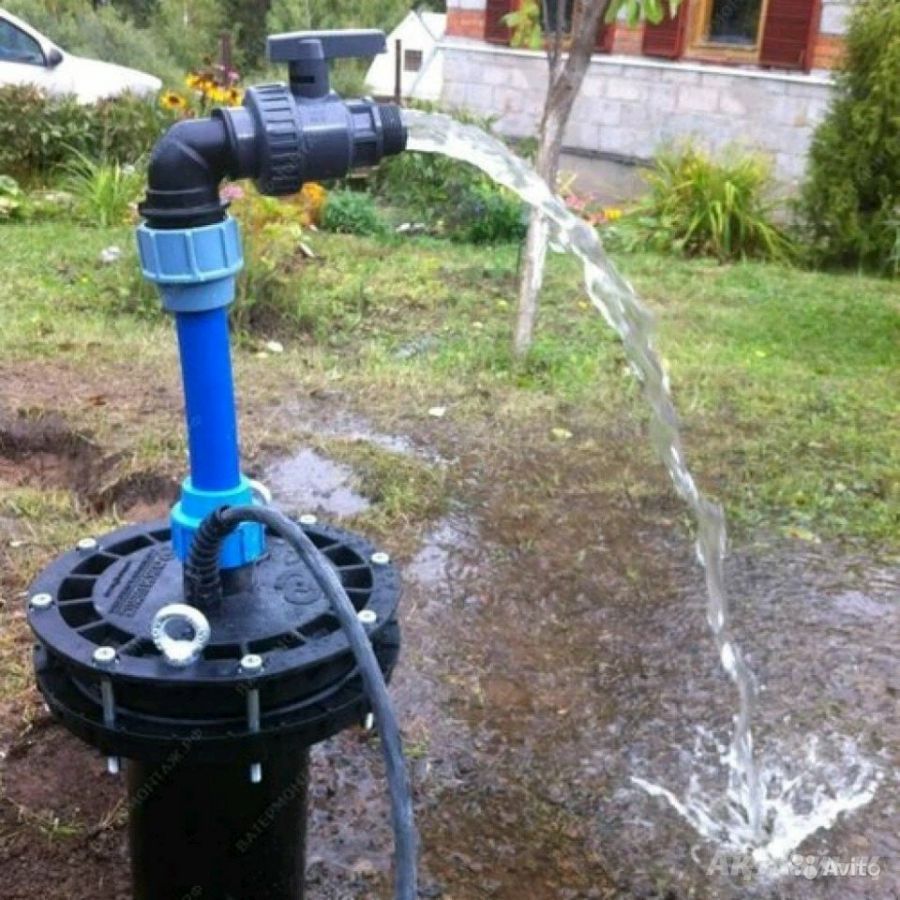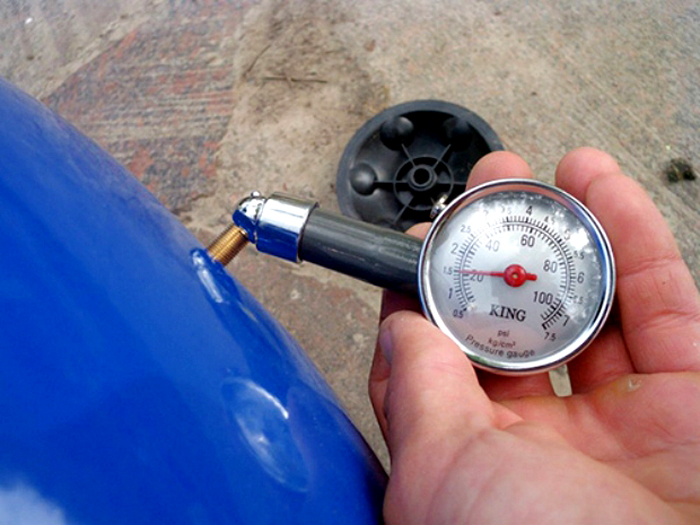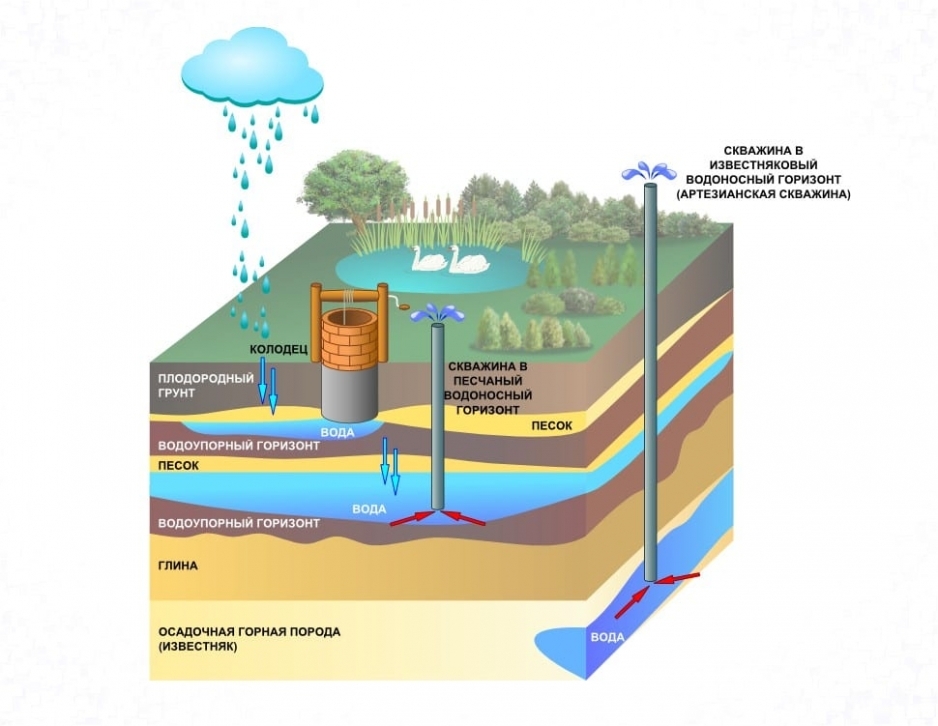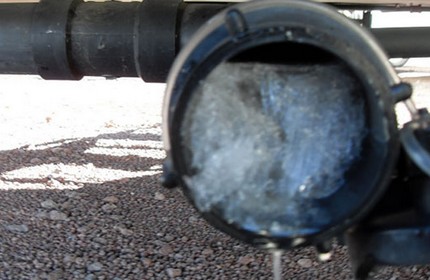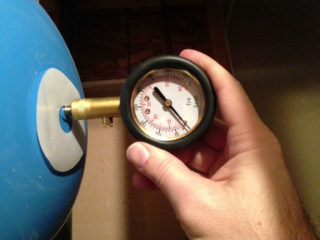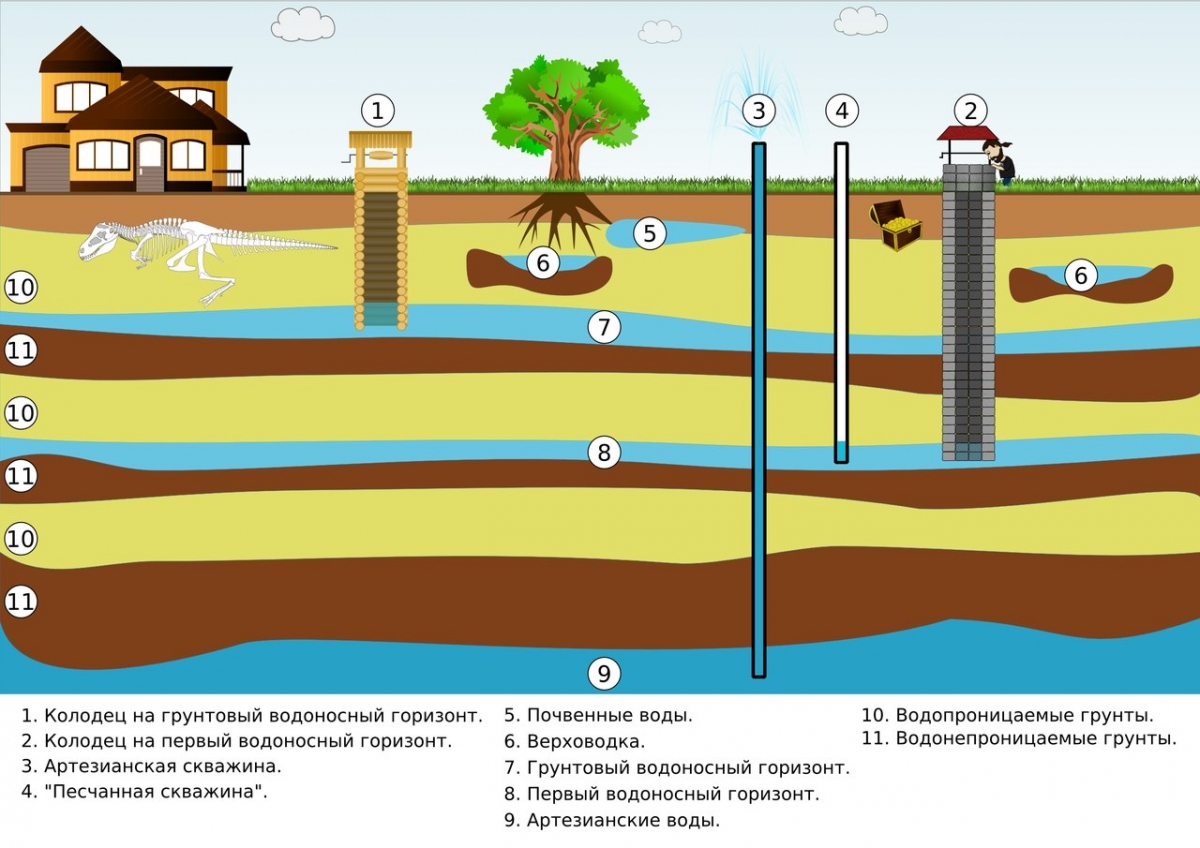Life in a country house is not only fresh air and silence, but also the need for a full-fledged autonomous supply: water supply, sewerage, power supply. Most often, a well or a well is used as a source of water. It is important to take care of the high-quality preparation of the liquid for use. A reliable water treatment system for a country house is a guarantee of the health and well-being of each family member.
Why do you need water purification in a private house
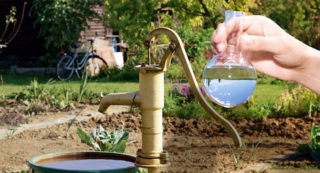
Well or well water is not always suitable for drinking and domestic consumption. Such liquid rises from the bowels of aquifers located at different depths. The lower the layer, the more stages of natural purification the water passes through: layers of sand, clay, limestone. In parallel, it is saturated with metal salts, minerals, iron, etc.
In borehole or well water, there are often small specks, grains of sand. Such a liquid is not drinkable and requires high-quality cleaning. Additionally, hard water will quickly disable household washing equipment, elements of the water supply system.
Even a visually clean liquid without small impurities, changes in color and odor can contain fungus, bacteria, viruses, chlorine, manganese, nitrates, ammonium, etc. As a result of the use of such water, sooner or later a person begins to have problems with the skin, internal organs, teeth, etc.
Filter types
Coarse filters
They represent an elongated flask with a metal mesh inside or replaceable cartridges. The latter must be changed regularly (at least once every 1-2 months). Depending on the size of the mesh cells, the device is capable of sifting out particles from the flow of 0.001 μm. The smaller the filter element, the faster it will clog.
Coarse filters are mounted immediately at the inlet to the pipe from the source. Thus, the pumping equipment is also protected from the ingress of small particles into the working chamber.
The main advantages of the devices are the removal of primary large suspensions from the water, a long service life at an optimal cost. The disadvantages include the impossibility of removing organic impurities, salts of heavy metals, viruses and bacteria from the water.
Ion exchange filters
The performance of an ion-exchange filter directly depends on the volume of resin backfill.
The advantages of such installations are:
- clear, simple installation and maintenance;
- complete removal of all dissolved impurities (except for hardness salts);
- quick softening of water from a well or well.
The disadvantages include:
- the need to regularly change expensive resin cartridges;
- insufficient filter performance due to a low ion exchange rate (the problem is often solved with the help of catalysts);
- the need for special conditions for the disposal of waste resin.
Ion exchange filters are good for a family of 2-3 people with high water hardness and moderate fluid consumption.
Charcoal filter
Charcoal filters are one of the points for additional purification of the medium supplied to the house. If the liquid does not contain solids, the equipment can be used as the only cleaning agent. The main advantages of installations include:
- unpretentious maintenance (requires regular replacement of carbon cartridges);
- excellent quality of drinking water at the outlet;
- versatility.
The most obvious disadvantages of a charcoal filter are:
- Low coal throughput and low plant productivity.
- The tendency to multiply in the filter bed of bacteria, microorganisms when contaminated.
- Dependence of the service life of the equipment on the dimensions of the installation (the smaller the cartridge, the sooner its operation ends).
If the water is heavily saturated with bacteria, impurities, salts of heavy metals, it is advisable to use any other preliminary method of liquid filtration.
Reverse osmosis plants
Advantages of reverse osmosis plants:
- high degree of water purification;
- sufficient performance;
- long service life;
- optimal dimensions.
The disadvantages are the cost of equipment. However, the high price later justifies itself by the excellent quality of drinking water.
Aerators
The main advantages of aerators are a high degree of water purification from dissolved metals, an acceptable cost, and an understandable principle of operation. However, the flask of the equipment must be regularly cleaned of accumulated deposits.
Among all the presented water treatment systems, there are main installations and filter nozzles. The latter purify the medium to be processed directly when it is fed into the tap to the user. The main features of the attachments are compactness, reasonable cost. However, such filters have low performance and are demanding on the pressure (if high, the filtration process will be defective). In addition, the service life of the nozzles is several times lower.
Criterias of choice
When choosing equipment for water treatment in a private house, it is extremely important to make a detailed analysis of the liquid from the source. It allows you to accurately determine which problem is to be dealt with: metal salts, manganese or ferric iron, sand, gases, bacteria, viruses.
You need to choose a filter based on the following criteria:
- the results of the analysis of the liquid;
- household water consumption (consumed volume);
- equipment performance;
- system pressure;
- the need for multicomponent fluid purification;
- the duration of the installation;
- principles, complexity of operation and maintenance.
It will be useful to pay attention to the presence of a service center or service company in the region for the selected type of equipment. If the installation does not require complex service, you need to take into account the presence of components in the free sale: replaceable cartridges, nets, etc.
Rating of the best filters for water purification in a private house
- Jugs "Barrier" or "Aquaphor". The simplest of all types of home equipment. The action of the device is that cold water, which has undergone primary mechanical cleaning, is poured into a primary tank with a carbon cartridge. The liquid passes through several layers of backfill and flows into the lower receiver. After that, it is ready for use. In addition to standard jugs, Aquaphor offers the consumer coarse filters, tap attachments and full-fledged water treatment systems.
- Installations "Geyser". The brand offers individual reverse osmosis equipment, long-distance ultrafiltration systems, standard jugs. The cost of the units is moderately high, but the cost is fully justified by the final quality of the liquid. Service maintenance of multistage equipment at a high level in Russia.
- Filters "Atoll". The company supplies the market with main water filters for a private house, fine cleaning equipment, as well as standard nozzle kits. Equipment "Atoll" copes well with pesticides, dissolved organic matter, chlorine. The units are easy to install and maintain. The peculiarity of Atoll filters is a completely transparent body. Thus, the user can see the performance of the filters.
- Transformer "AquaShield" (electromagnetic filter). The equipment purifies water by irradiating it with an electromagnetic field. As a result, there is no limescale on the walls of boilers and other installations. Among the AquaShield equipment there are main filters and standard flow nozzles. It is better to install electromagnetic filters on hard water from a lime well.
- Filters BWT (BVT). Effective devices for high-quality water treatment. The brand has a wide range of installations. At the same time, the cost of the filters is impressive.
Russian-made installations confidently compete with the equipment of European companies.
The cost of filtering devices
Prices for plants based on the cleaning principle:
- mechanical coarse filters - 3,000-5,000 rubles;
- ion exchange - from 16,000 to 40,000 rubles;
- coal - an average of 22,000 rubles;
- reverse osmosis - from 35,000 to 100,000 rubles;
- iron removers (aerators) - about 25,000 rubles. and higher.
In addition to the cost, you should immediately estimate the approximate cost of maintaining the installation.
Consumer reviews
Nikolay, 34 years old. I have a private house with a hole in the sand. In addition to the fact that the water is saturated with grains of sand, the result was shown by an admixture of nitrates. Immediately at the entrance I installed a coarse filter and then a Geyser reverse osmosis unit in the basement. It has been working for a year already. We live in the house all the time. We drink tap water, because reverse osmosis purifies the liquid by 99.9%. It's okay. This was also confirmed by the analysis.
Stas, 37 years old. My well in the country gives water with admixtures of magnesium and calcium bicarbonate. In addition to mechanical cleaning from insects and sand, I installed an ion-exchange unit under the sink. The scheme of work is clear to me. With an economical water consumption for two people, everything is fine. Replace cartridges regularly.


